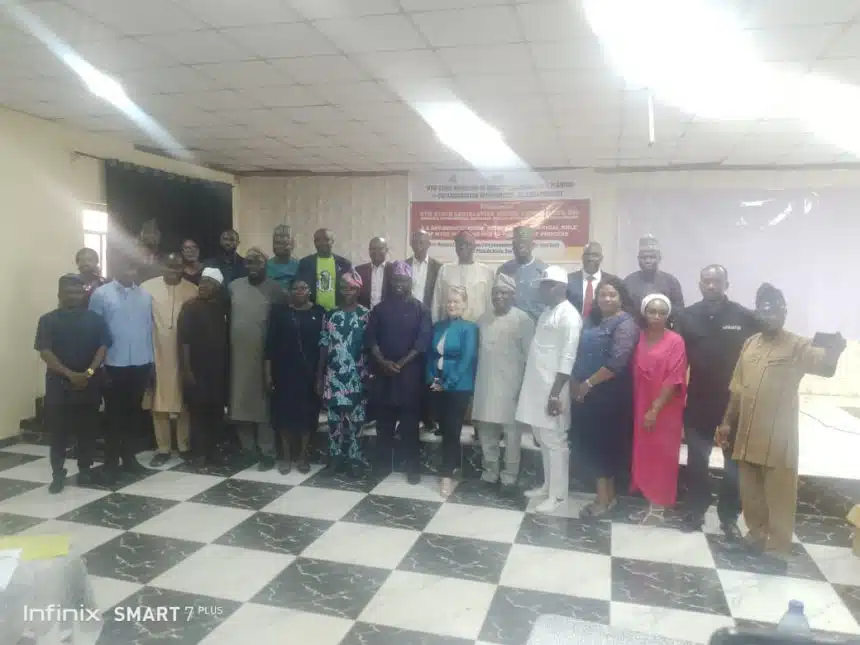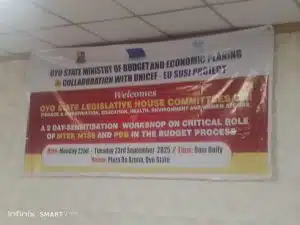The Oyo State Government says it is setting the pace for effective governance by strengthening a programme-based budget system that prioritizes the critical needs of its people.
Commissioner for Budget and Economic Planning, Prof. Musibau Babatunde Adetunji, made this known at the opening of a two-day workshop on the role of the Medium-Term Expenditure Framework (MTEF), Medium-Term Sector Strategies (MTSS), and Programme-Based Budgeting (PBB) in Oyo’s budget process.
The workshop, held in Oyo town, brought together budgetary stakeholders, state legislators, and development partners, with support from UNICEF.
Prof. Adetunji explained that Oyo has revolutionized budgeting by embracing inclusivity, a move that has not only improved transparency but also translated into stronger budget performance across sectors. He stressed that this approach ensures that government spending directly addresses the most pressing needs of citizens.
Also speaking at the event, Chairman of the Oyo State House of Assembly Committee on Appropriation, Hon. Babalola Sukanmi, lauded the initiative. He said the workshop demonstrated the executive’s resolve to align its policies with campaign promises aimed at improving the welfare of ordinary people in the state.
The UNICEF team, led by Chief of the Lagos Field Office, Ms. Celine Lafoucriere, commended Oyo’s proactive approach. She noted that the state had not waited for development partners before organizing the workshop, a sign of strong internal commitment to reforms.
“Oyo has already shown leadership. The State launched its first Social Protection Policy, created a coordination department, and institutionalized the MTSS process aligned with Agenda 2040 and the 5-year Medium-Term Development Plan. These steps strengthen budget realism and accountability, and they set the stage for better outcomes.” She said.
“We see this in the 2025 budget. Education receives ₦145 billion, about 21% of the total budget. Health gets N59 billion. Social protection has grown fourfold in two years, now at ₦2.18 billion. These are impressive numbers that translate into real opportunities for the 1.7 million children under five in Oyo, and the 334,000 children still out of school.
Yet challenges remain. Only 37% of one-year-olds are fully immunized, one in three children are stunted. More than four million people still practice open defecation and gaps in planning, data, and monitoring continue to limit progress.” She added.
Lafoucriere also emphasized the need for children’s welfare to remain a priority in budget planning, stressing that investments in child-focused programmes are crucial to sustainable development.
The workshop continues tomorrow with a series of technical sessions, lectures, and presentations focused on deepening the understanding of programme-based budgeting and strengthening Oyo’s public financial management systems.










